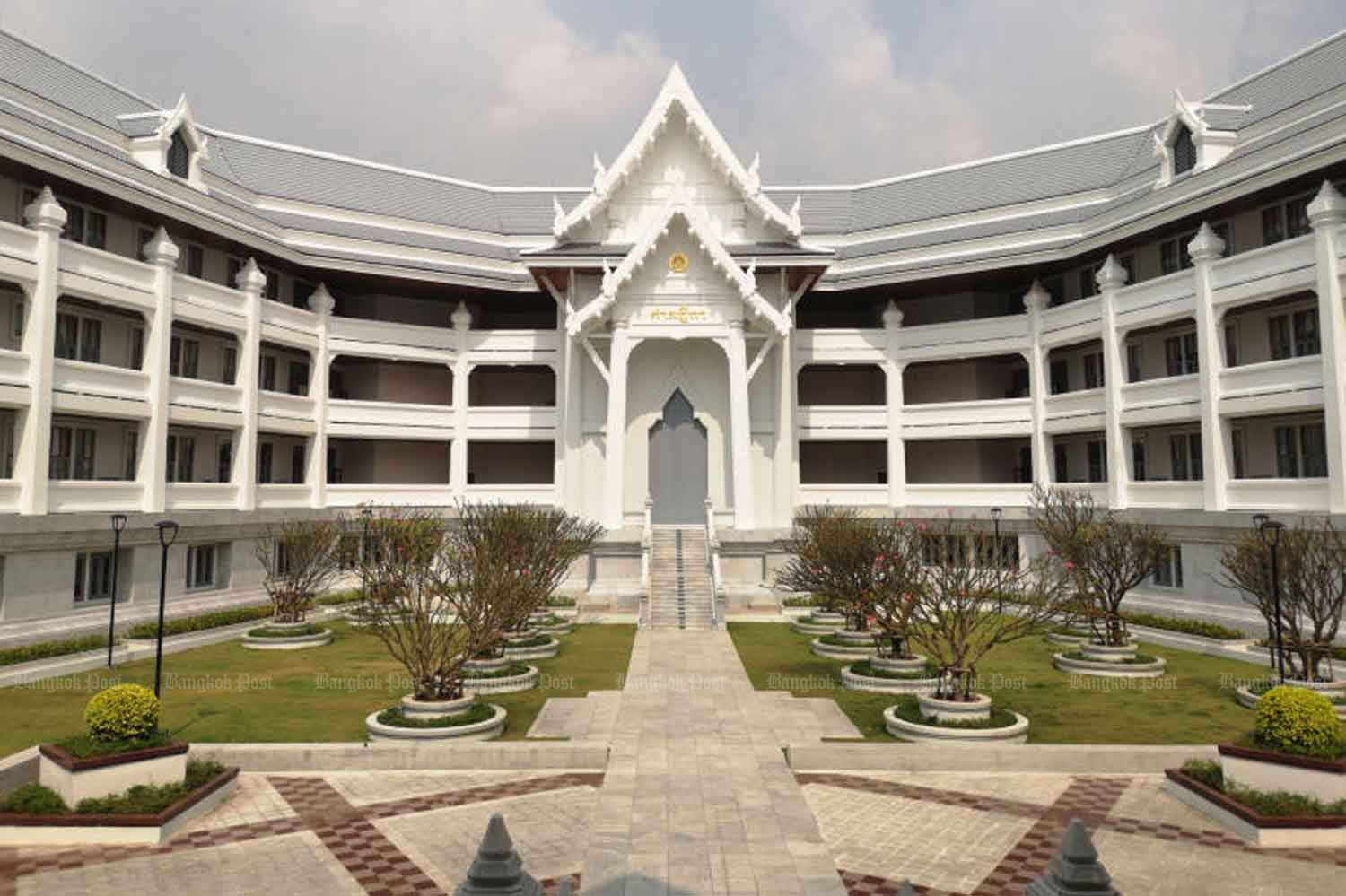
The Supreme Court's decisions in two criminal cases were delivered by video conference on Tuesday, setting a precedent for the Thai judicial system.
Office of the Judiciary spokesman Suriyan Hongwilai said on Wednesday the judgements were delivered in compliance with a new judicial regulation issued this year.
Initiated by Supreme Court president Salaiket Wattanapan, it allows the Supreme Court's orders or sentences in criminal cases to be read out via video conference. The intention is to shorten previously lengthy administrative procedures.
In the past, when the Supreme Court made a final decision in a criminal case, an envelope containing the decision had to go through a lengthy administrative process before reaching the court of first instance in the case. On receiving the letter of judgement, the court had to send a letter of appointment to all parties concerned, and wait for their confirmation to attend, before fixing the date to read out the decision.
The entire procedure could take several months.
If the defendant was acquitted or otherwise benefitted from the decision, there was a loss of time and opportunity for the defendant, Mr Suriyan said.
On Tuesday, at 9.30am, a judge took a seat at the Supreme Court and read out a decision in a drug case via a video conference connected to Bang Khwang Central Prison in Nonthaburi, where the defendant was being detained. The defendant was present, accompanied by prison officials, throughout the hearing.
In this case, the defendant was acquitted. The Supreme Court ordered the court of first instance to issue a warrant for the person's release.
At 10.30am, the Supreme Court began a video conference with the Nakhon Sawan and Phitsanulok courts, to read out a decision in another drug case.
The second defendant in this case was being detained at Phitsanulok Prison and was taken to the Phitsanulok court to hear the judgement. Although the case was initially heard in the Nakhon Sawan court, the defendant did not have to be taken from Phitsanulok to Nakhon Sawan.
In this case, the defendant was also acquitted and the court of first instance was ordered to issue a release warrant.
Mr Suriyan said that by delivering the Supreme Court's decisions by video conference, there was no need to take a defendant to the court in shackles, thus reducing the risk of them escaping.
It also protected the rights and freedoms of defendants while in detention pending court decisions, according to Mr Suriyan.
